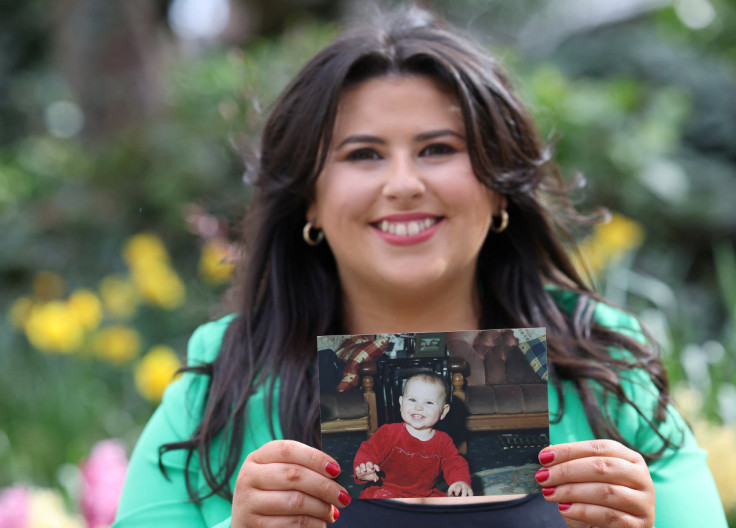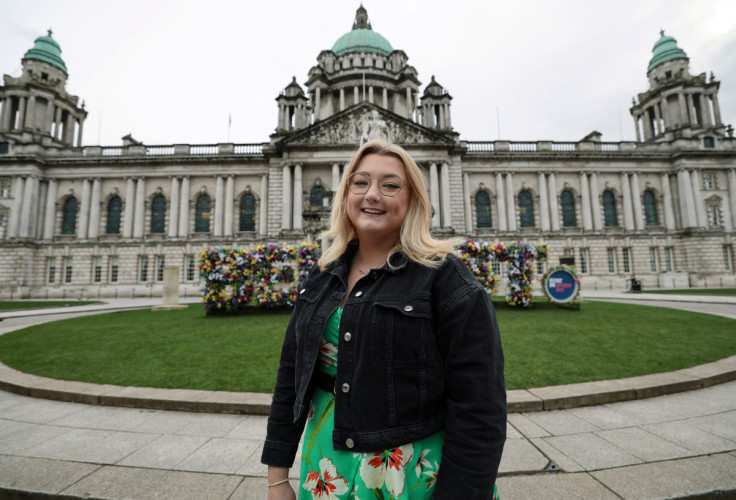Northern Ireland's 'peace babies' desperate for more progress
Bethany Moore was six years old when she started to understand the "complexities and nuances" of living in Northern Ireland.

Bethany Moore was six years old when she started to understand the "complexities and nuances" of living in Northern Ireland.
Born in December 1998, Moore is one of Northern Ireland's so-called "peace babies", the generation born just after the Good Friday Agreement was signed and considered the embodiment of hope for the region's post-conflict future.
Many were unaware of the three decades of violence the deal largely ended until learning about it in school. While they grew up without the kind of bloodshed their parents witnessed day in day out, progress has been painfully slow in many areas.
"I remember my mummy telling an anecdotal story about being in my grandma and grandpa's house and they were talking about barricades. I asked 'granda what's a barricade?" said Moore, a social policy and communications worker from Derry, referring to the barriers besieged residents erected to protect themselves.
"We're such a resilient community of people, because we've had to be. It is not a bad thing to be retrospective. I think we have to look back at our history to acknowledge it, to learn from it, but we could definitely do a lot more looking forward."
Moore, like others Reuters spoke to who were born in 1998, is more interested in issues like equality, housing and social justice than the sectarian politics that still plays out among the region's divided lawmakers. Moore feels "very much Irish" and is not affiliated to any political party.
The power-sharing government introduced 25 years ago mandating Irish nationalists and pro-British unionists to work together has sat idle for long periods since, most recently collapsing over unionist protests at post-Brexit trade checks.
Unionists, who are mainly Protestant and largely backed Britain's exit from the European Union, oppose the imposition of trade barriers with the rest of the United Kingdom in a bid to avoid a hard border with EU-member Ireland.
Nationalists, who are mostly Catholic, say Northern Ireland was wrenched from the EU in a UK-wide vote even though its smallest region voted 56% to 44% to remain.
"Brexit has been horrendous. Stormont (the Northern Irish assembly) not being up and running is ridiculous," said Jessica Keough from Bangor, County Down, who is from a unionist background but sees herself as Irish and Northern Irish, "and not British at all."
"I want Stormont to be back up and running as soon as possible. People need help," said Keough, normally a supporter of the fast-growing Alliance Party, which identifies as neither nationalist nor unionist, but also votes for nationalists when they stand for election in her largely unionist constituency.
'PROTECTIVE OF THE PEACE'
Some others in their mid-20s are keen to preserve those traditions.
"My family is half English, and I was brought up Protestant and unionist. Lots of family and my fianc? are big into the Orange Order," said Courtney Wells, who was born a month after the peace accord was signed on April 10, 1998.
"People can see unionism as being outdated, sectarian and homophobic. I am none of those things."
Wells, who got involved in politics in her teens and is secretary of a local branch of the Ulster Unionist Party, went to school in the County Armagh town of Lurgan where "you were aware of staying to your side of the town in your school uniform."
More than 90% of schools in Northern Ireland remain segregated along religious lines, as is housing in many areas.
"Instinctively I would say my childhood was fine but now I work in Dublin it is clear that I grew up in a post-conflict society," said Emma Rooney, who was born three days after the 1998 Omagh bombing, the bloodiest single incident of the "Troubles".
"There is something special about being a peace baby so people born around (that time) feel protective about the peace and the Good Friday Agreement."
(Writing by Padraic Halpin; Editing by Janet Lawrence)

Copyright Thomson Reuters. All rights reserved.





